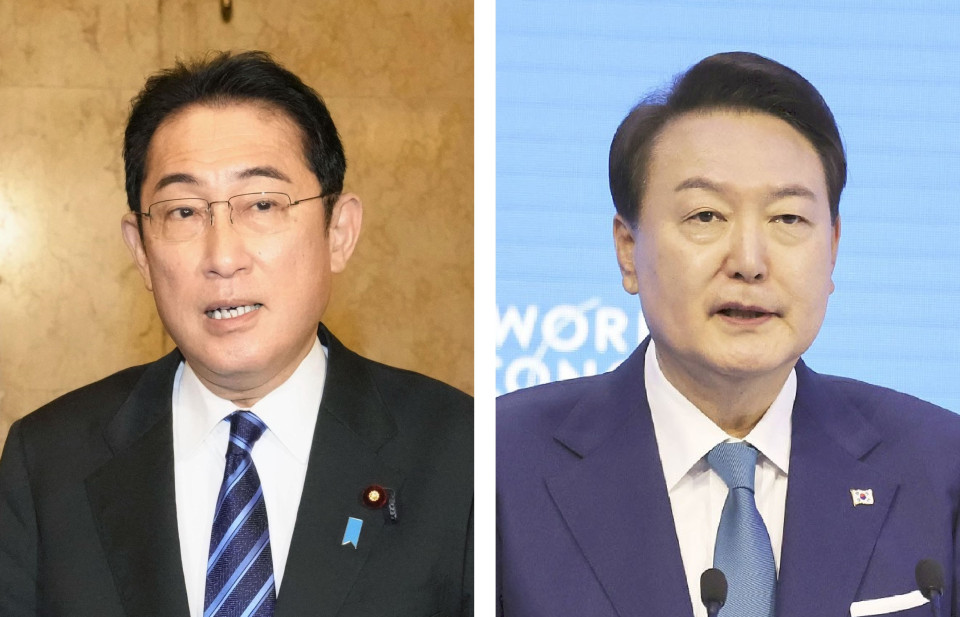A Kyodo News poll showed Monday that 57.1 percent of respondents in Japan support South Korea's solution to a wartime labor row between the two countries, announced last week.
The telephone survey, conducted over three days from Saturday, also found that 56.8 percent will continue using protective face masks despite the government relaxing its COVID-19 guidelines on mask-wearing this week.
The approval rating for the Cabinet of Prime Minister Fumio Kishida stood at 38.1 percent, up from 33.6 percent in mid-February.
As part of efforts to improve ties with Japan, South Korea unveiled its plan for settling the wartime labor compensation dispute with its neighboring nation.

Kishida has hailed the proposal, saying South Korea's decision will help restore "healthy" relations between Tokyo and Seoul, while 33.3 percent of the respondents did not appreciate the move, the survey showed.
Under the solution, a South Korean government-backed foundation will pay compensation to the country's plaintiffs who won lawsuits over alleged forced labor during Japan's 1910-1945 colonial rule of the peninsula instead of the Japanese companies that were sued.
South Korean President Yoon Suk Yeol, who has expressed eagerness to improve bilateral ties with Tokyo since taking office last year, is scheduled to visit Japan later this week for talks with Kishida about the wartime labor issue.
On Monday, meanwhile, Japan began to ease its coronavirus guidelines on mask-wearing, now making it a personal choice whether to use the face coverings as it seeks to normalize daily activities that have been under public health restrictions due to the pandemic.
Mask-wearing has not been legally mandated in Japan. But more than half of the respondents in the latest poll said they will keep donning masks, with 35.1 percent saying they will reduce the frequency of using them.
As for a controversial issue of whether the government of former Prime Minister Shinzo Abe put political pressure on broadcasters, 65.2 percent said they believe a former special advisor to him intervened in the freedom of broadcasting.
Last week, the Ministry of Internal Affairs and Communications acknowledged papers recently made public by an opposition party lawmaker that suggest political pressure was put on broadcasters by Abe's administration having been compiled within the organ.
The documents, revealed earlier this month, indicate that between 2014 and 2015, Abe's government urged the internal affairs ministry to change its interpretation of "political fairness" under the broadcasting law.
Sanae Takaichi, the minister in charge of broadcasting at the time, has claimed that parts of the papers featuring her are incorrect, calling on the opposition party lawmaker to bear the burden of proving the authenticity of the documents.
Takaichi now serves as economic security minister. Kishida, who became prime minister in October 2021, said the government has not altered the interpretation of the broadcasting law.
The survey called 498 randomly selected households with eligible voters on landline phones and 2,256 mobile phone numbers. It yielded responses from 431 households and 626 mobile phone users.
Related coverage:
60% of South Koreans oppose Japan wartime labor dispute resolution
South Korea President Yoon to visit Japan on March 16 amid improving ties
South Korea announces solution to wartime labor row with Japan










